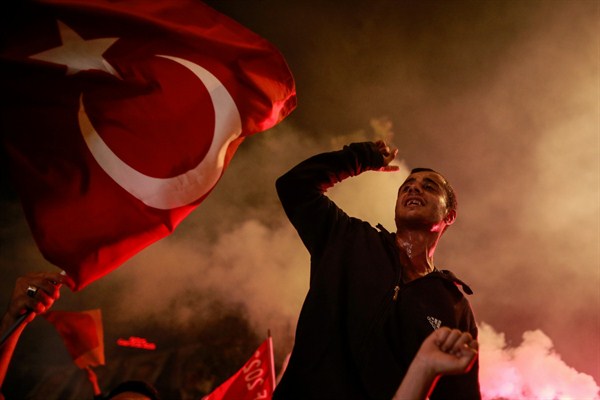In the end, Turkish President Recep Tayyip Erdogan easily defeated his electoral challengers last week, winning re-election outright in the first round of voting on June 24. By taking nearly 53 percent of the vote, he even narrowly bested his performance in the 2014 presidential elections, when Erdogan was seeking the newly empowered office of the presidency after more than a decade as Turkey’s prime minister. Perhaps even more impressive, his electoral alliance—made up of his Justice and Development Party, or AKP, and the hard-right Nationalist Movement Party, or MHP—managed to win a majority in Parliament, defying many predictions as the polls neared.
The elections were the final political hurdle before Erdogan’s long-sought presidential system, which was narrowly approved by a popular referendum in April 2017, could kick into full gear. With the victory, an ever-stronger Erdogan will now lead Turkey until at least 2023, the centennial of the modern Turkish Republic. This is the dawn of the Turkish Fifth Republic.
There were many uncertainties about the outcomes of the elections. Polling numbers were predicting a tight race, and there were doubts if Erdogan could avoid going to a second round, where the opposition might coalesce around a single candidate, and if his coalition would lose its parliamentary majority. Some were even prematurely hinting that Erdogan’s political fall from grace was just around the corner.

